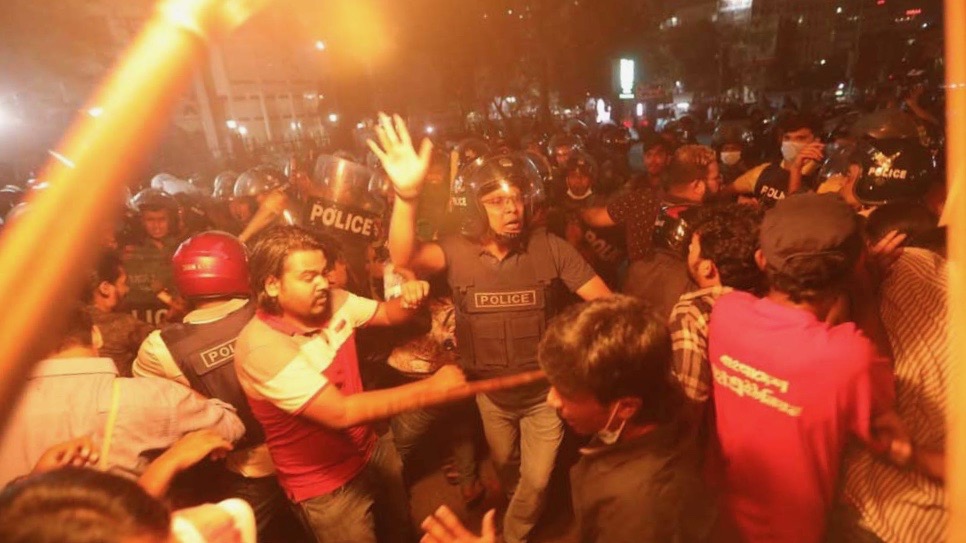Bangladeshi cartoonist Ahmed Kabir Kishore, who has been in jail for 10 months under the notorious Digital Security Act, was granted bail by the country’s High Court on Wednesday, March 3. The decision came days after the death of writer Mushtaq Ahmed who was detained under the same law. The death of the 53-year old writer on February 25 had led to protests and condemnation in the country and abroad.
Both Ahmed Kabir Kishore and Mushtaq Ahmed were denied bail six times since their arrest in May. Kishore was reportedly tortured in prison and his health condition had severely deteriorated. The duo were arrested for criticizing the government’s response in dealing with the coronavirus.
Protests were also held on Wednesday condemning the death of Mushtaq Ahmed and demanding the abolition of the Digital Security Act. Such protests have been held almost every day since February 26 despite severe repression.
At least fifteen students were injured and three activists were arrested when police resorted to shelling tear gas in Dhaka’s Shahbagh on February 26. Protesters demanded the repeal of the controversial Digital Security Act under which the writer was detained. Prime minister Sheikh Hasina while responding to the incident during a press conference said, “The death of anyone is not at all desirable… it is also not desirable to create anarchy over that death. So far, no incident like that of the November 3 killing of four national leaders in jail has taken place. What is there to do if someone dies after falling sick in jail?”
The insensitive comments further agitated the protesters. Protesters, including students and activists from different left-leaning unions, organized a number of protests. On March 1, dozens were injured outside the National Press Club when the police repressed a protest demanding an investigation into the death of the writer.
On Monday, the United Nations High Commissioner for Human Rights Michelle Bachelet called for a transparent investigation and review of the controversial law (Digital Security Act) under which the writer was arrested last year.
“The Government must ensure that its investigation into (Mushtaq) Ahmed’s death is prompt, transparent and independent,” Bachelet said, adding that “Various UN human rights bodies have long raised concerns about the ill-defined, overly broad provisions of the Digital Security Act that have been used to punish criticism of the Government.”
Several rights organizations, including Amnesty International, Human Rights Watch and the United Nations, have demanded a thorough investigation of the case that led to Ahmed’s death on February 25. The writer was declared brought dead by doctors at the Shaheed Tajuddin Ahmed Medical College in Ghazipur.
In a statement, the Committee to Protect Journalists (CPJ) called upon the Bangladeshi government led by Sheikh Hasina to take initiatives for the cancellation of the 2018 Digital Security Act, which the group said is ill-defined and suppresses freedom of expression.
“Mushtaq Ahmed’s death in a Bangladeshi prison, where he never should have been detained in the first place, is a devastating and unconscionable loss,” the New York-based rights group added. It asked the government to conduct a swift, independent and transparent investigation and immediately release the co-accused cartoonist who has also allegedly been subjected to physical abuse inside prison.





